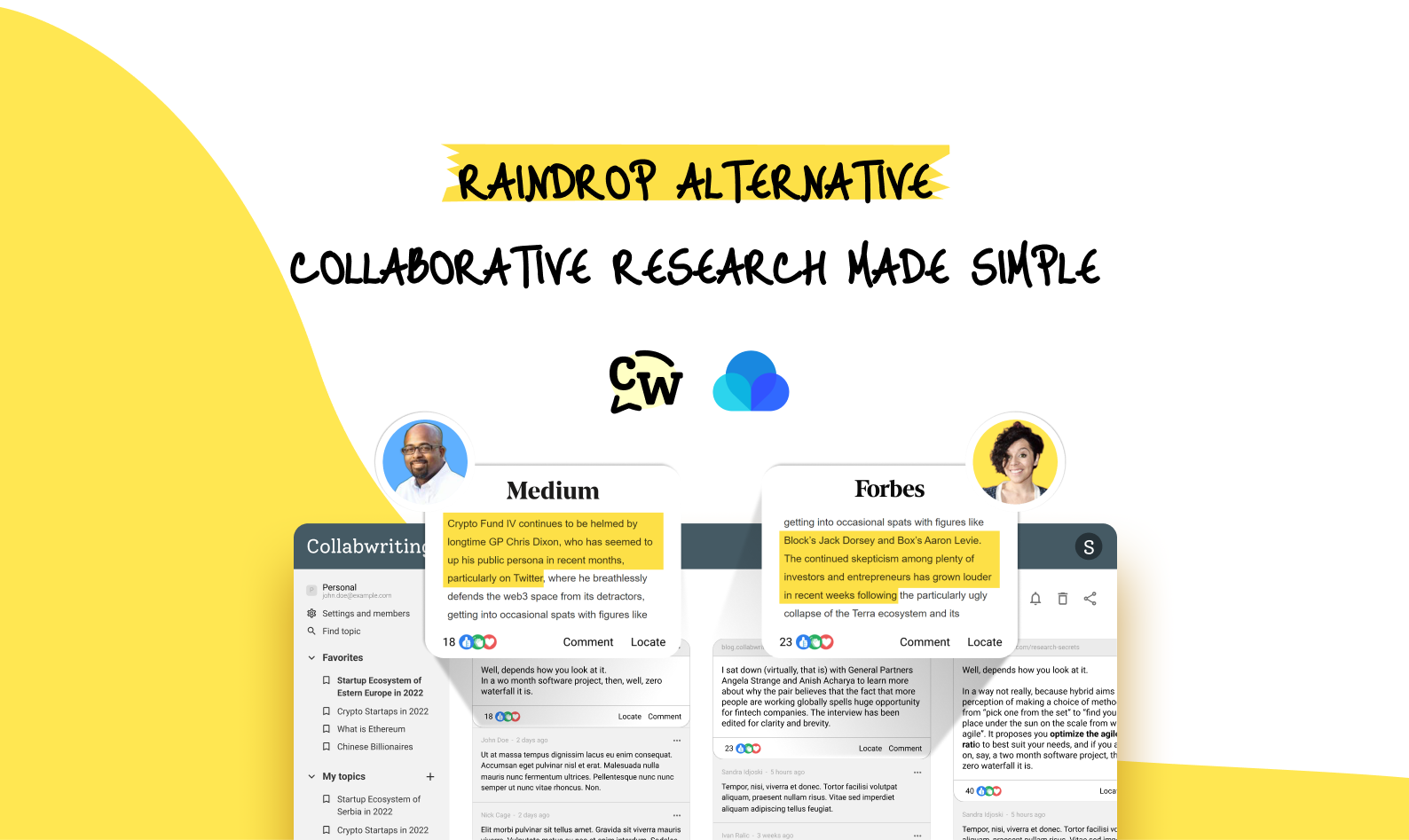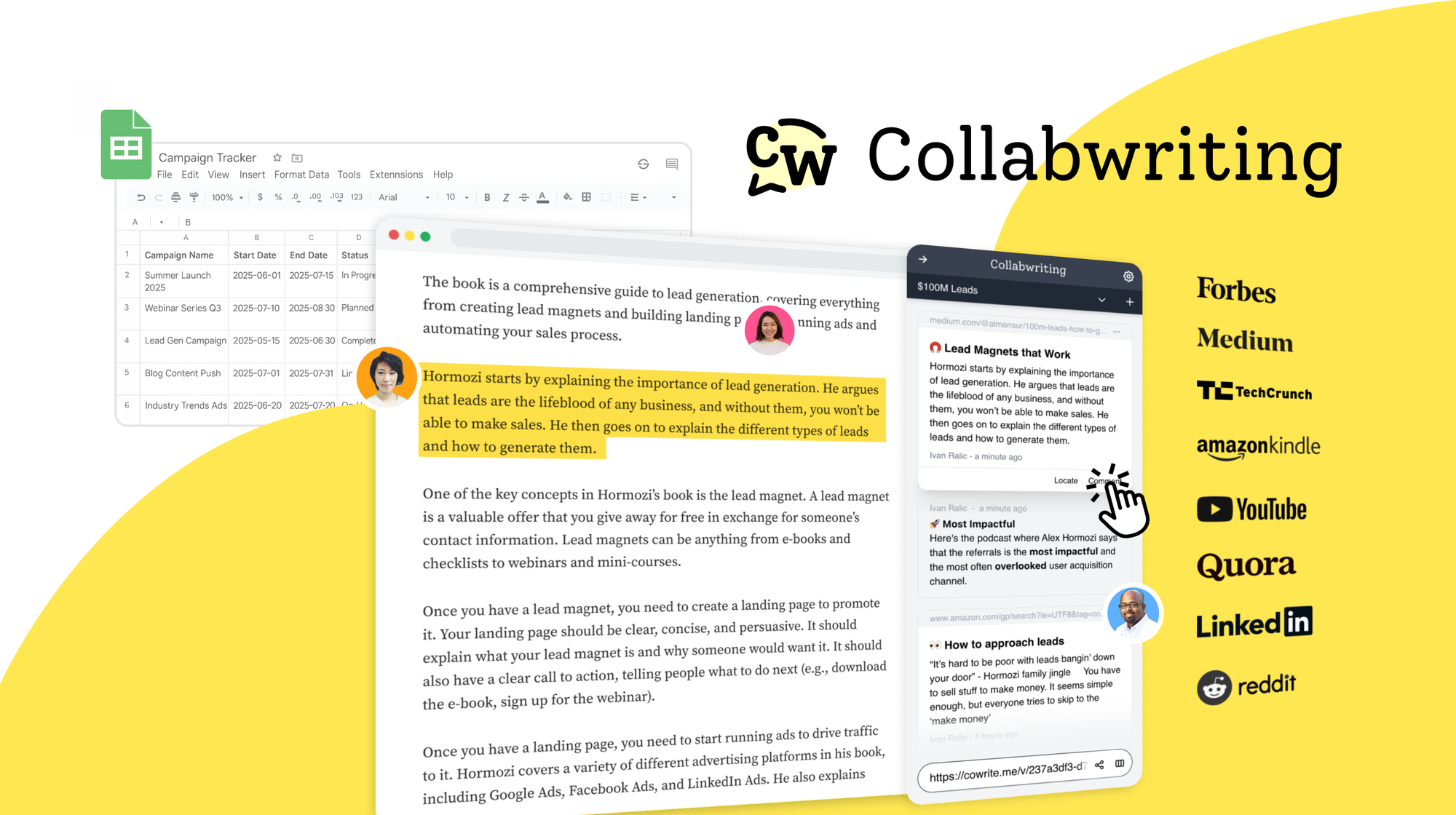Have you ever opened a PDF with 100+ pages, only to need a couple of sentences?
Or typed messages like, "Check the first paragraph on page 15 and the last section of the image on page 67"?
At that moment, you might think, "Why a PDF? Isn’t there an easier way to collaborate?" 🙄
Traditionally, you’d take screenshots of paragraphs, refine them with notes, organize everything into folders, and then spend 20 minutes crafting an email to share them with your team. By the time you hit send, half your day is gone.
This way of collaboration is a thing of the past.
That’s exactly why using collaborative PDF annotation and markup can be such a lifesaver.
Let's explore the steps you can take to ensure your feedback reaches the right people at the right time without killing your team's productivity.
Collaborative PDF Annotation - Why Is It Important?
No matter how you like to collaborate, the truth is that collaboration on PDFs is super common. They're secure, support e-signatures, and always look the same, no matter what app or tool you use.
But giving and receiving feedback on PDFs can be painful if you rely on screenshots and long email threads.
Collaborative PDF annotation tools can help you transform the way you collaborate.
With the right tools, you can:
- Highlight and comment directly on the PDF
- Share feedback in real-time
- Keep your document organized, secured and versioned
No more converting PDFs to Word, wasting time on calls, or confusing your team with messy screenshots.
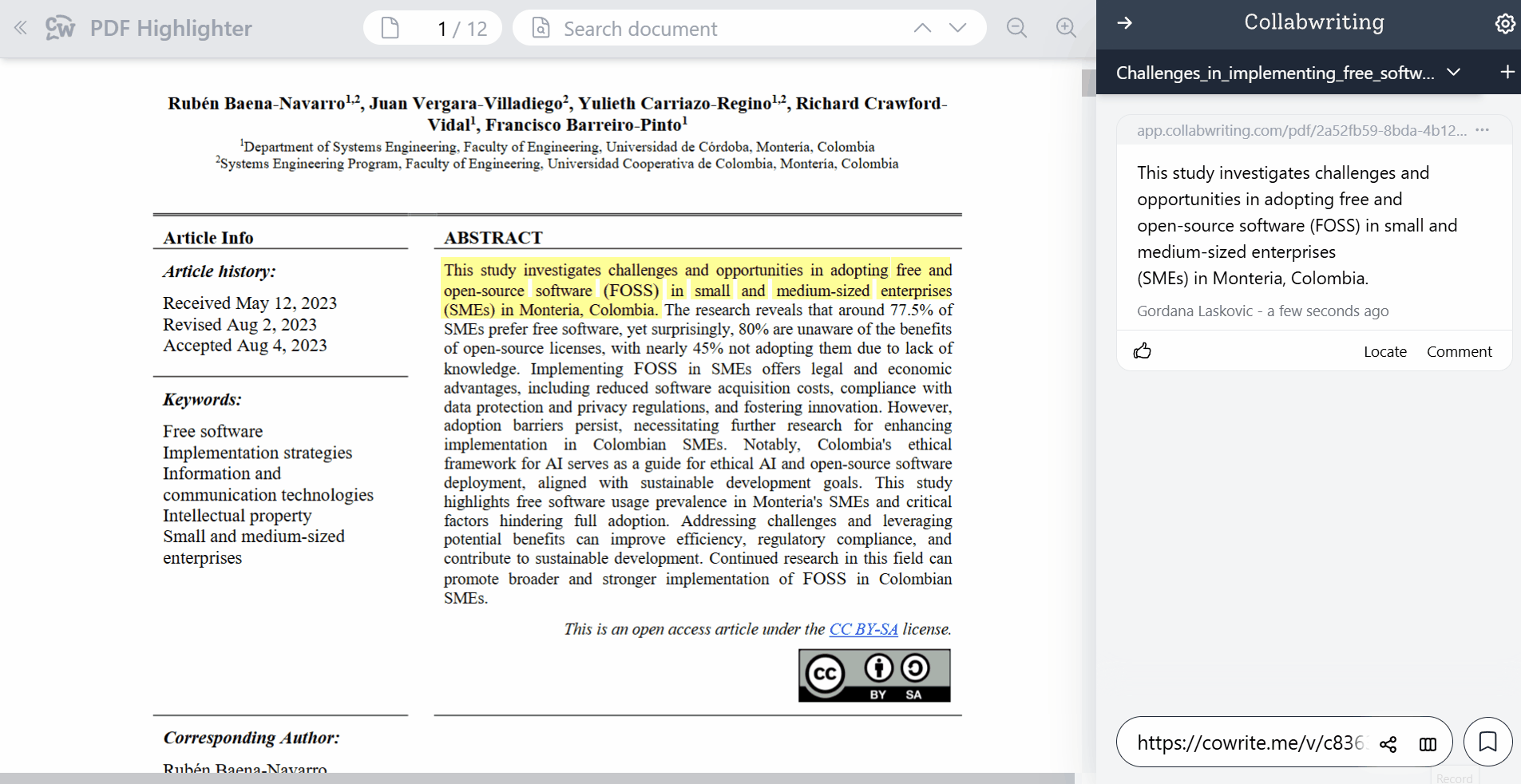
Benefits of Collaborative PDF Markup
Annotating PDFs comes with a host of benefits across personal, educational, professional, and collaborative scenarios.
Whether you’re working alone or with a team, annotating PDFs online brings huge advantages:
1) Better Communication
Clear message: PDF annotations help express thoughts and ideas clearly, ensuring everyone gets the context.
Highlighting and commenting: Simple features like highlighting and commenting draw attention to important info, making it easy to spot in the document.
2) Smooth Collaboration
Instant feedback: PDF annotations let collaborators share feedback directly on the document, cutting down on lengthy email threads and promoting real-time communication.
Easy tracking: Annotating PDFs helps keep tabs on changes and revisions, ensuring the document stays current.
3) Organized Workflows
Structure your content: PDF annotations help organize content by categorizing, tagging, and prioritizing information in the document.
Spotlight key info: By highlighting keywords or key phrases with PDF annotations, you can easily locate and refer to crucial information.
4) Quick Reviews
Time efficient: With PDF annotations, reviewing docs is a snap. Adding comments and suggestions directly to the document makes processes much faster.
Accurate feedback: PDF annotations make sure feedback is clear, minimizing any chances of misunderstanding.
In short, collaborative PDF annotation and markup streamline communication, reduce feedback loops, and speed up project approvals.
⏰ Promote real-time interaction
🔁 Reduce feedback loops
💡 Share insights more easily
🎯 Speed up project approval cycles
🫱🏼🫲🏼 Speak the same language as your collaborators
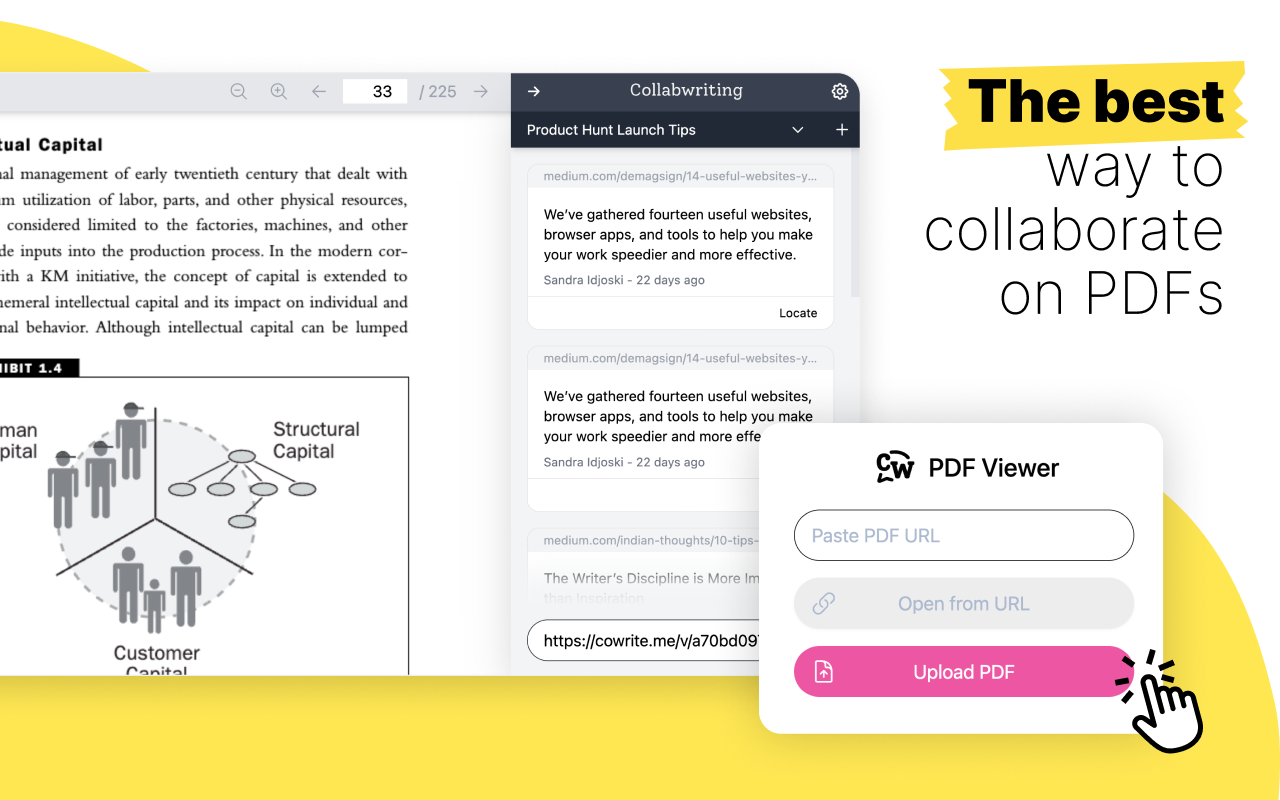
Collabwriting - Shareable Notes on Web Pages and PDFs
Collabwriting allows you to gather all your online sources in one place. Just highlight, save, and collaborate with anyone on any content you find online.
Industries That Benefit from PDF Collaboration and Annotation
PDF collaboration and annotation aren’t just handy features. They’re essential in many industries and professional settings.
They make it easier for people to review, edit, and share information without endless email chains or version confusion:
Legal & Compliance - Collaborate on Online Sources and PDFs
Analyses and reviews: Legal professionals use PDF annotation tools to add comments, highlights, and notes to contracts, court documents, and case files. This makes collaboration and case analysis easier.
Legal research: Lawyers and paralegalsmark up legal texts and articles, making it simpler to find and reference important information.
Contextualization: Lawyers can add comments to provide context, helping everyone interpret legal content more accurately.
Cross-Functional Contract Collaboration: Legal, finance, and operations teams can review and comment on contracts together, speeding up approvals and reducing mistakes.
Education
Online learning: Students can highlight key concepts, add notes, and interact with digital textbooks or course materials to improve learning.
Grading and feedback: Teachers can use PDF annotation to grade assignments, give feedback, and correct essays or exams more efficiently.
Consulting
Internal report collaboration: Collaboration on PDFs among team members can streamline internal reporting processes.
Client collaboration: It facilitates seamless collaboration with clients to improve communication and case efficiency.
Business and Finance
Financial Reports: Analysts highlight and comment on financial reports to make data easier to understand and discuss with colleagues.
Contract Management: Businesses mark up contracts and agreements for negotiations, signing, and easy reference.
Publishing
Editors use PDF annotation tools to edit manuscripts, fix errors, and suggest changes in books, articles, and magazines.
Co-authors work together on research papers and publications by adding comments and suggestions to PDF drafts.
Content marketers
They use it to highlight important text in PDFs during online research, making content creation easier. If working in a team, they can highlight parts needing changes and add comments to improve the content together.
Plus, when sharing ideas, they can highlight and comment to explain things better to their team.
Each industry has its own way of working with PDFs. In our use cases resource, you’ll find detailed examples of how teams - from legal to marketing - leverage Collabwriting for PDF collaboration.

How to annotate PDFs with Collabwriting?
Collabwriting allows you to create shareable notes and highlights on any online web page, including PDFs.
- Add notes to a PDF from any location
- Work together with team members or clients in real-time
- Keep track of document versions and changes
- Streamline the organization of your annotated PDFs
- Upload your PDF files
How to Annotate PDFs with Collabwriting - Step By Step
Getting started with Collabwriting is easy:
- Install the Collabwriting browser extension (Chromium-based browsers)
- Open an online PDF, click the extension icon, and start annotating

Or, open the PDF through your Dashboard:
- Click the "Reader" button
- Paste your PDF link or upload your PDF
- Highlight, comment, and save your insights

Your annotations are instantly shareable, and your team can collaborate without confusion or wasted time.
You can also upload a PDF by clicking "Upload PDF." It's a quick way to pick and bring in any PDF from your computer.
Once uploaded, our app's PDF viewer will open right away, letting you view and work with your document.
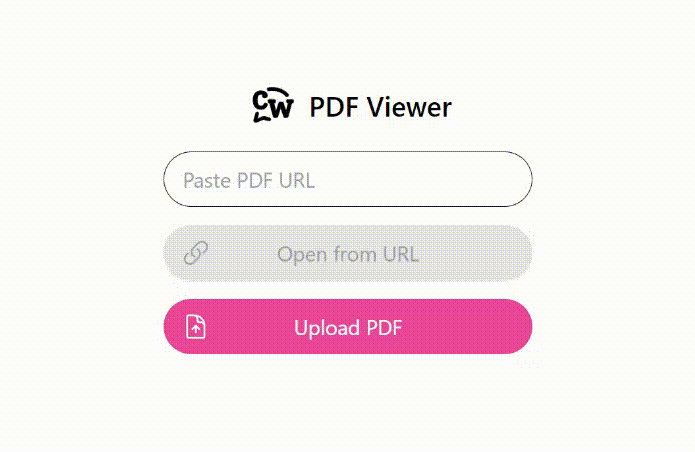
Conclusion
Most PDF tools out there solve just one piece of the puzzle.
Some let you annotate, but make sharing hard. Others let you share, but strip away the context. And many force you to jump between different apps just to get basic feedback across.
Collabwriting is different.
With Collabwriting, you can:
- Work with any PDF
- Highlight and annotate directly in the document
- Leave clear comments with full context
- Share insights instantly with your team or clients
Instead of juggling multiple tools with partial solutions, Collabwriting gives you everything you need in one place, making collaboration on PDFs simple, fast, and actually effective.
Want to see everything Collabwriting can do for PDFs? Our help center covers it all 👈🏼
What is collaborative PDF annotation?
Collaborative PDF annotation allows you to highlight, comment, and add notes directly on a PDF, which can be shared with others.
Instead of sending endless email threads or screenshots, everyone can view the same document, see the context, and give feedback in one place.
How is collaborative PDF markup different from regular annotations?
Regular annotation is usually just highlighting or adding notes for personal use. Collaborative PDF markup goes further - it allows multiple people to highlight, comment, and interact with the document in real-time, making teamwork more productive.
Why use PDF collaboration tools instead of converting to Word or Google Docs?
Converting PDFs into Word or Google Docs often breaks formatting or removes important elements. PDF collaboration tools keep the document’s original look intact while enabling annotation, commenting, and sharing. This saves time and avoids confusion.
In which industries is collaborative PDF annotation most useful?
It’s widely used in legal (contracts, case materials), education (digital textbooks, assignments), consulting (reports, client docs), business and finance (reports, contracts), publishing, and content marketing.
Essentially, any industry that needs to review and share documents can benefit.
How does Collabwriting improve PDF collaboration and annotation?
Collabwriting allows users to highlight and add notes directly to online PDFs through a browser extension or by uploading PDFs to their dashboard.\
It’s a complete PDF collaboration tool that covers everything: annotation, feedback, context, and sharing, without forcing you to jump between different apps.
- Open and annotate any PDF online
- Highlight key information and add comments with full context
- Share insights instantly with teammates or clients
- Keep all annotations organized in one place
How do I start annotating PDFs with Collabwriting?
Getting started is simple:
- Install the Collabwriting browser extension (works with Chromium browsers).
- Open any online PDF and click the Collabwriting icon to start annotating.
- Or, upload a PDF via your Collabwriting dashboard and highlight, comment, and share from there.
In just a few clicks, you’re ready to collaborate on PDFs with full context.



![Collaborative PDF Annotation Made Easy - How Collabwriting Can Help [2026]](/content/images/2025/12/Frame-1957.png)
![The Best Tool for Collaborative Research in Content Marketing Teams [2026]](/content/images/2025/12/image--5-.png)

![5 Tools Marketers Use to Organize Research - Compared [2026]](/content/images/2025/11/cover-4-1.png)

![Build Credibility in Research: Smart Way to Verify Information and Track Sources Easily [2025]](/content/images/2025/10/covers-for-blog--7--1.png)
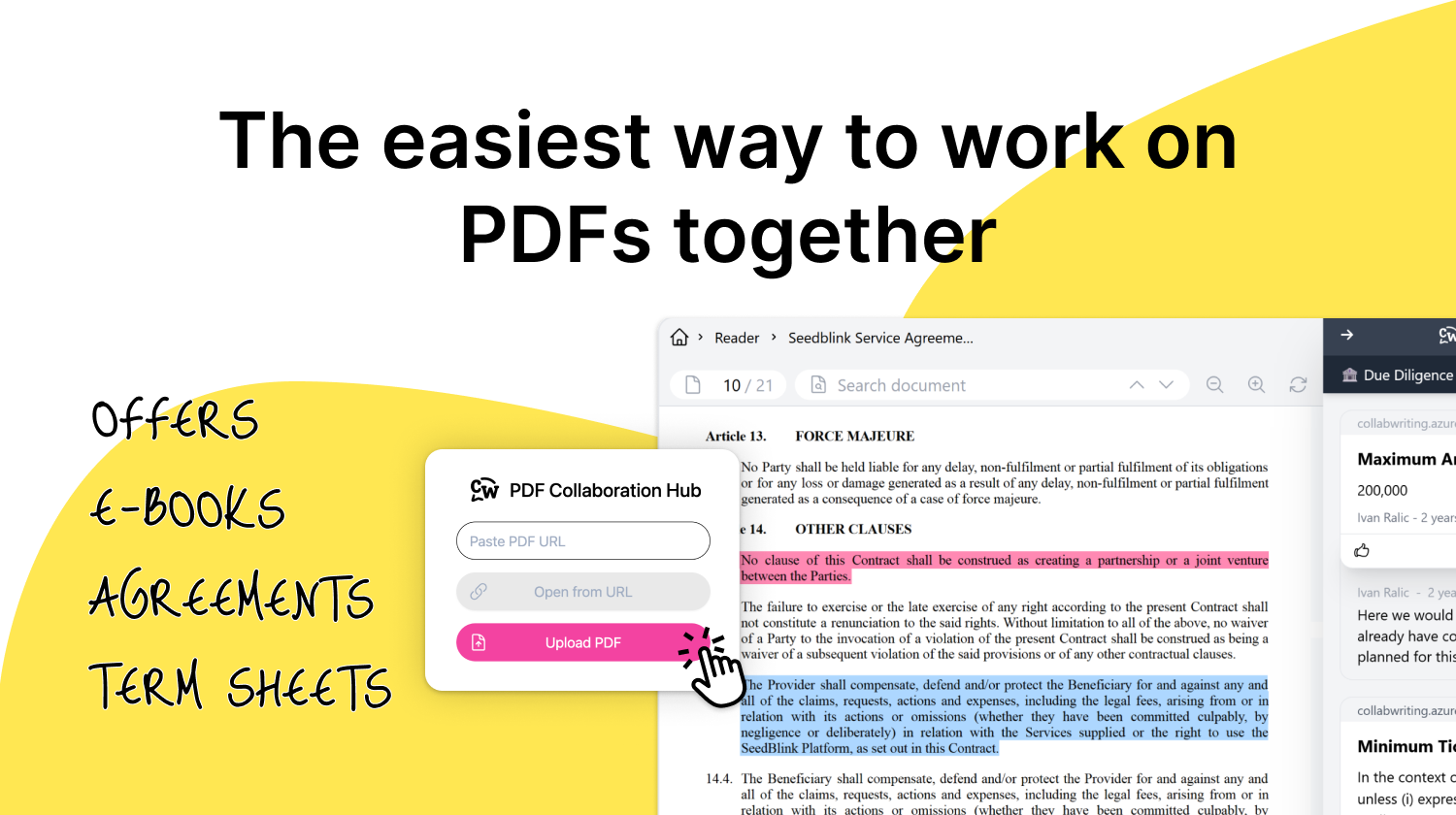
![How Marketers Can Turn LinkedIn Content into Collaborative Research [2025]](/content/images/2025/10/covers-for-blog--8-.png)
![Best Readwise Alternative for Personal & Team Research [2026]](/content/images/2025/09/Frame-814--3-.png)
